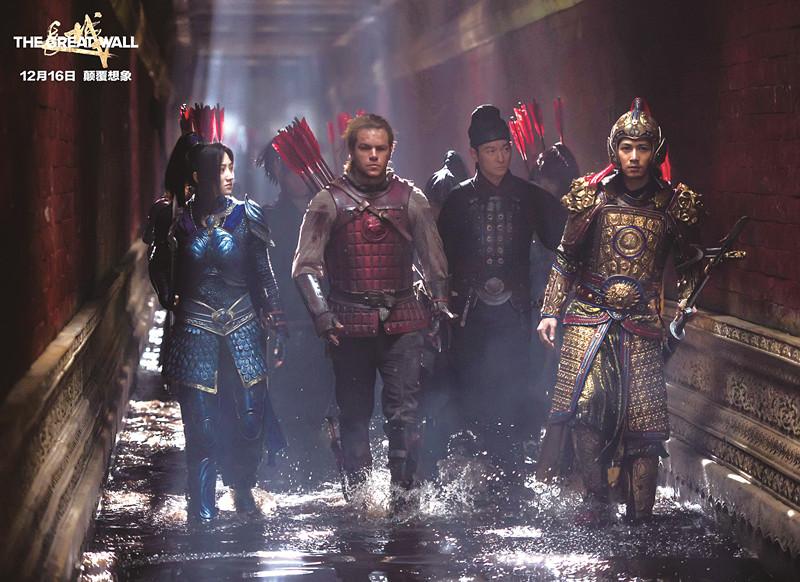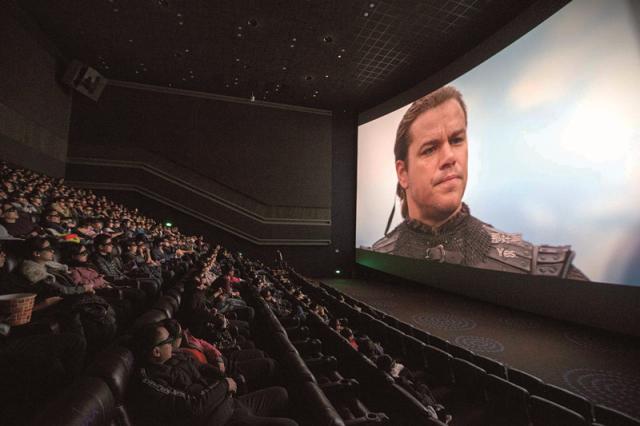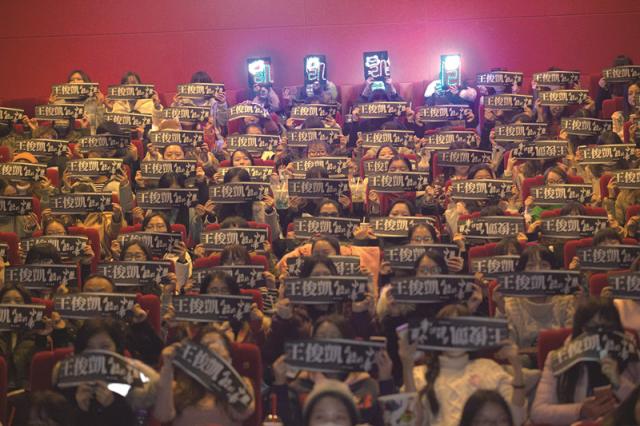Backing it with a massive marketing campaign, Legendary has high hopes for the film, projecting a box office of US$200 million in China alone. But unfortunately, the film has triggered controversy from the outset.
Shortly after Legendary released its first trailer in July 2016, Damon’s leading role was criticized as another case of “whitewashing,” where white actors are chosen for roles that should have gone to actors of other ethnicities.
In a widely-shared tweet, Constance Wu, an Asian American actress criticized the movie for “perpetuating the racist myth that [only a] white man can save the world.”
In response, Damon defended his role, arguing that his character was always intended to be a European, while emphasizing that the casting was intended to merge the star power of both China and Hollywood.
The argument appears to be that the arrangement was made based on a market assessment rather than by racial or ethnic considerations. Matt Damon has been popular in China. Both the Bourne series and The Martian were hits in China, with the latter taking 587 million yuan (US$84.5 million). Casting Damon as the lead, the film had the potential to be a success in both markets.
In China, the results of the strategy appear mixed. On one hand, although falling short of the $200 million target, box office sales of US$144 million can hardly be said to be a failure. But on the other hand, the fact that the film has received poor ratings on China’s major movie review websites spells trouble, as the film will not be released in theaters in the US until February 7, 2017.
On Douban.com, China’s leading movie review site, The Great Wall received a score of 4.9 out of 10 based on the ratings of over 170,000 viewers, as of early January 2017.
In promoting the film prior to its release in December 2016, Zhang Yimou told Chinese media that a major focus of his work is to “incorporate Eastern and Western culture.”
“It is not enough to simply use exotic Chinese elements to attract Western audiences,” said Zhang, “That’s why we have put a lot of effort into polishing the entire story.” Unfortunately, this is exactly where the film has disappointed Chinese moviegoers, as many complained about the film’s thin plot and the superficiality of the Chinese elements.
Much of the criticism echoes the earlier “whitewashing” accusation the film received in the US. For many Chinese moviegoers, it is awkward and implausible to see a European mercenary becoming a hero amid all the Chinese soldiers and generals. “When it eventually takes a foreign archer to save the day, it makes a joke of all the Chinese regiments so exquisitely displayed earlier in the film,” said one reviewer on Douban.
Another critique published by Yingshikoubei, a major movie review blog that has over 20 million followers, went further to claim that by shortchanging the Chinese cast, the film has “brought shame” to the entire Chinese film industry.
Arguing that the film, funded by a Chinese company and directed by Zhang Yimou, should promote Chinese characters, the critic said it is an embarrassment to see fighters cast by Chinese stars either being killed off early such as the General of the Bear Regiment of the Chinese army, played by Zhang Hanyu, or lacking character, such as the Chinese army strategist played by Andy Lau, compared to the Western cast.
“With a Western hero saving the world, combined with an [Eastern] beauty and supporting comrades, everything in the film is Western except a Chinese shell on the outside,” reads the article, “It is equivalent to an ‘ancient version of 007’.”

 Old Version
Old Version

